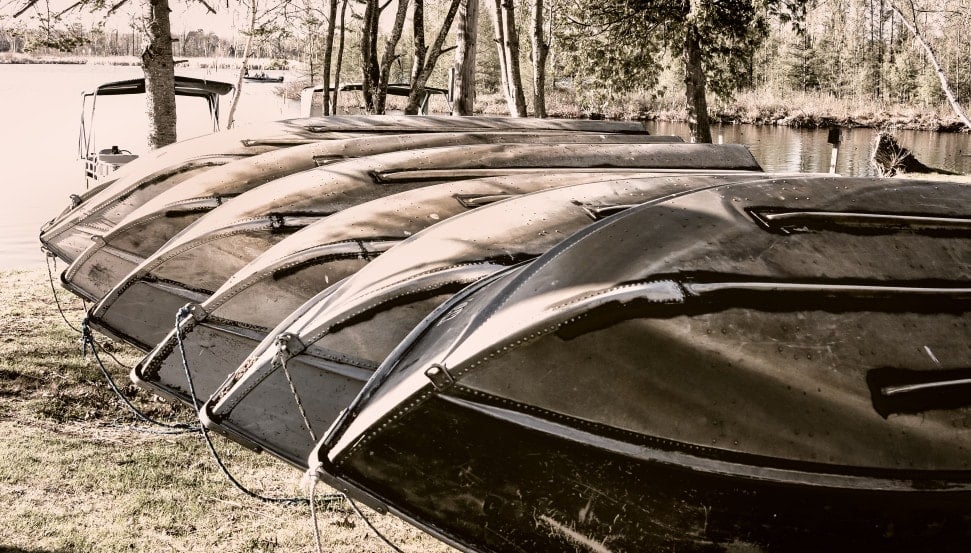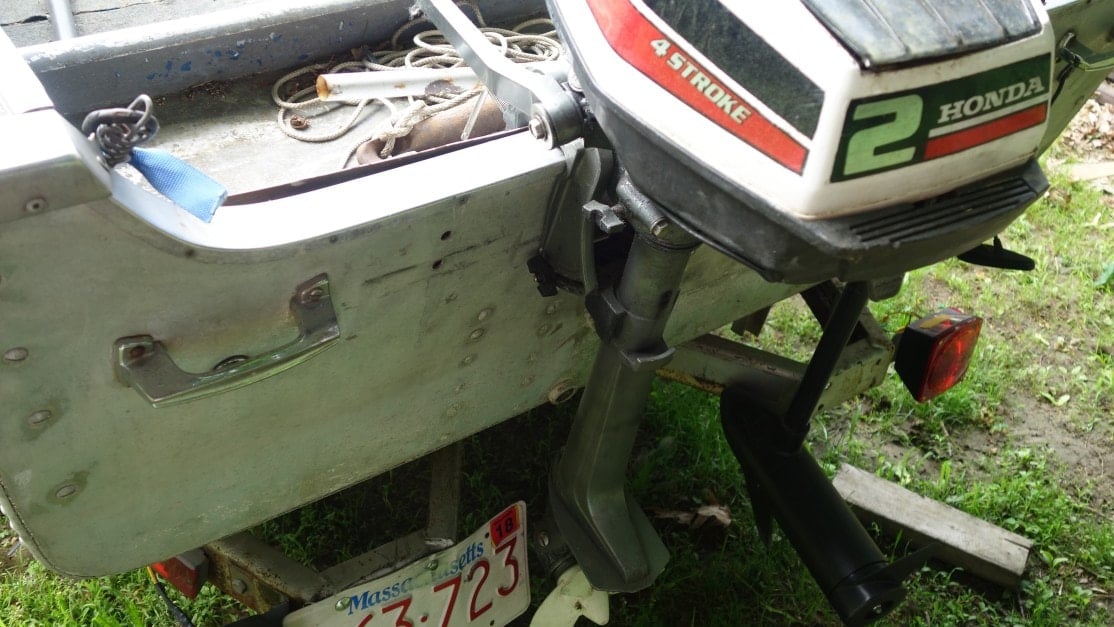How to Protect your Aluminum Boat Against Rust | A Step-by-Step Guide
If there is one thought boat owners and non-boat owners share, it is that maintaining a boat is not easy. Boats, even the ones on the smaller scale are huge, which means the maintenance on them is no joke. Most people cannot even keep their car clean, much less a boat. However, owning a boat is an investment and when you invest in something, you want to take care of it.
If you own a boat, chances are you have come across dealing with rust, especially if you own an aluminum boat. Whether you have been having these problems for years and want an easier solution to get rid of it, or this is the first time you have stumbled upon it, we are here for you. Down below are some quick and easy ways to protect your aluminum boat against rust.
Maintaining an Aluminum Boat Against Rust
Did you know that in 2015, over 44,000 aluminum boats and pontoons were sold? With these high sales, it makes aluminum boats the third-highest selling category of boats for the entire year. That’s impressive!
Aluminum boats are popular among boaters because they are strong and durable; yet at the same time, surprisingly light. This hybrid makes them super fast on the water while giving them the ability to transport by a trailer.
Most people think that because aluminum boats are corrosion resistant, then that means they are also corrosion-proof. However that is not the case, and this is especially true if the aluminum used on the boat is on the lower quality side.
Do aluminum boats rust and leak?
The short answer: yes.
The only way your aluminum boat or boats will not rust is if you keep them out of the water. However, that would defeat the whole purpose of a boat right?
Aluminum boats are susceptible to both oxidation and corrosion. Oxidation occurs when the electrons are repealed by oxygen molecules while corrosion occurs when a material interacts with either a liquid or different metal, this causes a “galvanic reaction.” Oxidation is caused by oxygen molecules and corrosion is a chemical reaction to metals and liquid.

How to Prevent Galvanic Corrosion on Aluminum Boats
To help maintain your aluminum boats, many boats and engine manufacturers will attach anodes to your boat. This is because zinc is not as active as aluminum; therefore, having zinc anodes connecting to the aluminum parts of your boat will act as a guard/protection.
It is important to note to not overdo-there is such a thing as too much of a good thing. If you overdo the process, it will cause the zinc to develop a sort of crust and stop working.
In short, the zinc ends up “giving” the aluminum its extra electrodes to shred rather than the aluminum having to give up its own; thus, the saltwater will corrode the zinc instead of the aluminum.
How to prevent rust on an aluminum boat?
If you are starting to seek those pesky terracotta color spots or worse, then it is time to repair. It does not matter how careful you are with your aluminum boat, rusting is bound to occur if you are using your boat often.
Since you have spent so much money on your boat, then you probably have. Aluminum boats tend to rust after in saltwater compared to freshwater, but it will occur either way.
Here are some methods that aluminum boat owners have tried and stand-by.
Purchase a Floating Lift System
The best way to prevent rust on an aluminum boat is to purchase a new floating lift system. Like we have mentioned above, the quickest and easiest way to prevent your boat from rusting is to just avoid the water completely. However, it is obvious that is not an option so what is the next best idea?
Yes, you got it: a floating boat lift.
Why You Should Invest in a Floating Lift System
Back in the day, traditional boat docks would keep your boat in the water even when they are not in use. These traditional boat lifts are also a hassle because they require a power source; however, a power source requires a lot of maintenance.
Not only that, but there will be times when there are not any power sources around the dock or marina. This means that you have two choices:
- Keep your boat in the water when you are not using it
- Buy a bunch of extension cord just in case you are in an area that does not have a power source
Save Yourself the Trouble
If those two options above sound like a hassle, that is because they are. When you purchase a floating boat lift, you solve the problem of what happens when you do not have power but you require a boat lift.
When you buy a floating boat lift, you have time and money on your side. When it comes to time, you save yourself a lot of time because you do not have to constantly haul and un-haul your boat in and out of the water.
You will also save money because like we had mentioned earlier, your boat will not be rusting as fast because it will not be sitting in the water.
What Kind of Floating Boat Lifts Are Out There?
We would suggest purchasing a floating boat lift that is made from polypropylene, instead of other metals. This is because there is a lower chance of galvanic corrosion occurring in boat lifts made of polypropylene.
Aside from this, make sure you are purchasing a floating boat lift that goes with your boat size and type.
There are a variety of options you can choose from such as:
- Multi-hull floating boat lifts
- Static floating boat lifts
- Air assisted floating boat lifts
For more information about floating boat lifts or to browse around to see which one suits your boat the best, check out JetDock’s website.
Other Methods of Preventing Corrosion
We understand that purchasing a boat is already an investment and investing more money on a floating boat lift might not be in the cards right now. If that is the case, do not worry, we have got you covered!
Here are a few quick tips and tricks to prevent rusting and corrosion your aluminum boat:
- Do not mix metals!
- Remember to rinse, rinse, rinse! If you are using your boat in saltwater, be sure to give it a good spray down before you call it a day. This will help so much with rusting and corrosion.
- Avoid paint anodes or other grounding plates if possible.
- If you are repainting or building the boat yourself, be sure to only use paint and coatings that are safe to use with aluminum. If you are not sure, be sure to do a quick Google search. It is better to be safe than sorry.
- If you see any cracks and/or scratches, get to them right away! If you leave them be, then there is a greater chance that those small cracks and scratches will expose the bare aluminum. If the aluminum is not protected from the paint or coating, then it is more susceptible to rusting.
- Do not surpass 1,3000 millivolts of impressed voltage
- Lastly, do not use an automotive battery charger on your boat.
Owning a boat is high maintenance enough so putting in that extra effort to avoid rust may seem like another hassle, but it is worth it to be on top of this. If you love your boat and you love the sea, then you will have to deal with rust.
However, if you follow the tips above, then you should be fine. Do not let rusting and corrosion ruin your boating experience, all it takes is a little time and patience and soon it will not even be a bother to you.
How long do aluminum boats last and Why Does it Matter?
If you have been reading through this entire article and thinking what a headache it is to take care of rust, then the answer to this question might make it all worth it to you. You love your aluminum boat right? Of course, you do, that is why you have been researching how to maintain and protect it from rust.

Yet you are probably also wondering, how long do aluminum boats last anyway? What is the point in taking care of a boat that will only be around for ten years right?
Well…the average lifespan of aluminum boats are…30-40 years. Yes, you read that right. Keep in mind that the average boat is replaced every ten to twenty years, but the better you take care of your boat, the longer you will have it.
This is especially true for aluminum boats that will stay with you for at least 30 years if you choose to take care of it.
If you would like more information about aluminum boats, please consider reading AluVenture’s article titled “Why Aluminum Boat?”
